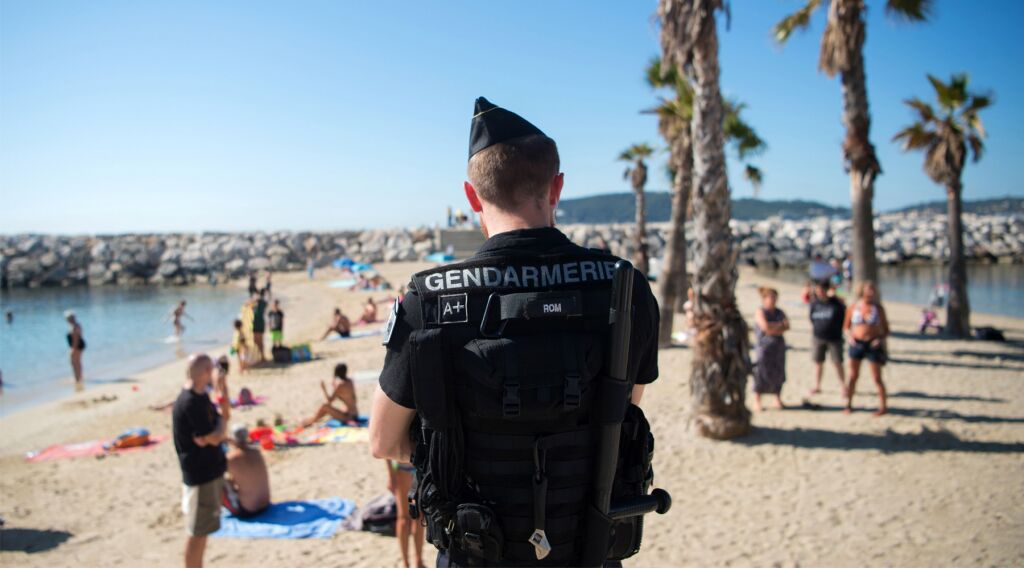
France’s Burkini Ban of Desperation
Romania once banned playing Scrabble because it was “overly intellectual.” In Monza, Italy, it’s illegal to keep a goldfish in a bowl, and in Iran, gelling your hair into spikes is prohibited. If you’re a monk in Tibet, you must have government permission to reincarnate yourself. And as of August 2016, about 30 French towns have made it illegal to wear a burkini on the beach.
Burkinis are a type of female swimsuit designed to conform with Islamic traditions of modest dress. Logically, they are most often associated with Muslims, although designer Aheda Zanetti estimates nearly 40 percent of her customer base is non-Muslim.
Burkinis aren’t being banned because they are dangerous. The problem is secularist France saw burkinis popping up on its beaches a month after a terrorist attack in Nice killed 86 people.
Beginning on July 28, Cannes, a resort town on the French Riviera, banned the burkini. Those caught wearing it would be fined $42. Approximately 30 towns joined in on the ban, including Nice. Dozens of women received tickets for not wearing an “outfit respecting good morals and secularism,” and protests and debates ensued. Human rights and anti-Islamophobia associations argued the bans breached the French Constitution. In one town, the ban was taken to court.
France’s highest administrative court ruled against the burkini ban on August 26, saying it was “a serious and manifestly illegal attack on fundamental freedoms.”
Mayors could only put a ban on the burkini if there was a “proven risk” to public order. The court said there was no proven risk.
But the majority of mayors who banned the burkini have refused to lift the restrictions. They will not enforce the ruling in their own towns. Former President Nicolas Sarkozy called instead for a nationwide ban on burkinis.
For those who look at the burkini case from a localized and legal standpoint, the decision is clear: France protects religious freedom, burkinis are not dangerous, therefore, it should not be banned.
Those who favor the ban don’t see burkinis as an isolated incident. To them, burkinis are part of a clash of civilizations.
Jean-Louis Harouel, professor emeritus of the history of law at the University of Paris, summed up the thinking of the growing right-wing movement in France when he criticized the court’s decision:
[T]he Conseil d’Etat [the court] failed to take into account the fact that France is now engaged in a clash of civilizations, that just in the past year has cost it hundreds of deaths on its own territory, and which made it necessary to maintain the state of emergency. “Islamism” is now making war on France, and there is no real boundary-line between Islam and Islamism.
The Conseil d’Etat failed to take into account the shock felt by the French people on seeing burkinis deliberately appearing on the beaches so soon after terrible massacres had been committed in France by Muslims acting in the name of their god. So soon after the carnage on the promenade in Nice and the slitting of the throat of a priest while he was fulfilling his priestly duties, such an increase in the flaunting of Muslim identity is truly indecent.
Harouel went on to say the problem with the “rule of law” was that it meant “condemning the peoples of Europe to helplessness when confronted by the mass immigration that is submerging them.”
If you’re a safe distance from Europe, you might think the burkini ban is ridiculous. But if your child didn’t come back from celebrations in Nice on Bastille Day, you might think differently. You might be, as France is, getting desperate.
